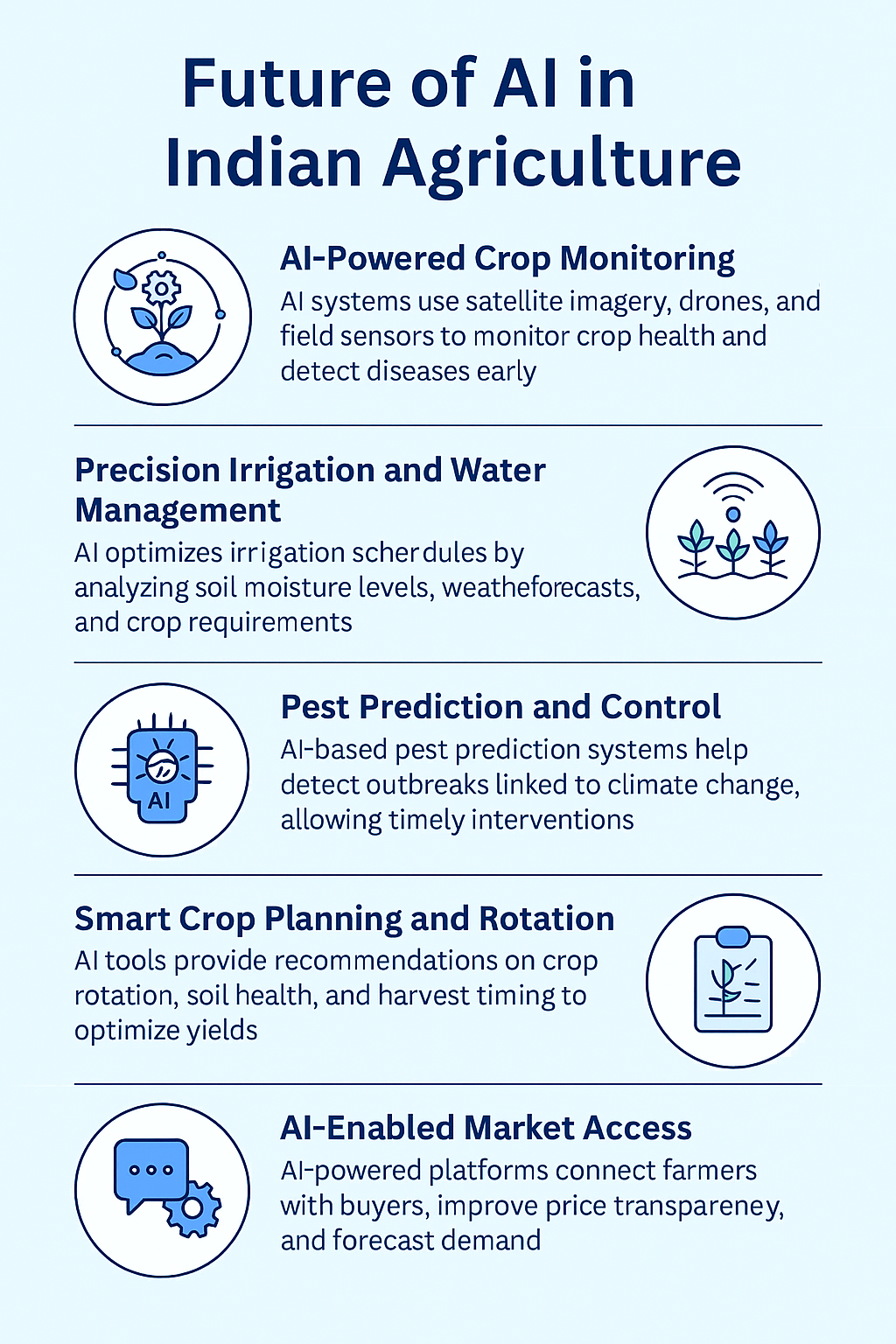Artificial Intelligence in agriculture is revolutionizing how food is grown, managed, and distributed. As global challenges like climate change, population growth, and resource scarcity intensify, AI offers innovative solutions to make farming more efficient, sustainable, and resilient. In this blog, we explore how AI technology in farming is shaping the future of agriculture.

🚜 Precision Farming with AI
AI enables precision agriculture by analyzing data from sensors, drones, and satellites. Farmers can make smarter decisions about planting, irrigation, fertilization, and harvesting. Machine learning models help optimize crop yields, reduce waste, and minimize environmental impact.
Example: AI can predict the best time to sow seeds based on soil health and weather forecasts, improving productivity and reducing risks.
🐛 AI for Crop Monitoring and Pest Control
AI-powered drones and computer vision systems scan fields to detect early signs of disease or pest infestations. These tools allow for targeted pest control, reducing pesticide use and promoting sustainable farming.
💧 Smart Irrigation Systems
Water scarcity is a major concern in agriculture. AI helps manage water use efficiently by:
- Monitoring soil moisture
- Analyzing weather data
- Adjusting irrigation schedules
This leads to cost savings and supports eco-friendly farming, especially in drought-prone regions.
🛒 AI in Agricultural Supply Chains
AI is transforming agricultural supply chains by:
- Forecasting demand
- Managing inventory
- Reducing food spoilage
AI systems track produce from farm to market, ensuring transparency, quality control, and better pricing for farmers.
📱 AI Tools for Farmers
AI-powered mobile apps and chatbots provide farmers with:
- Personalized crop advice
- Weather updates
- Market prices
- Government scheme information
These tools make expert guidance accessible, especially for small and marginal farmers.
⚠️ Challenges in AI Adoption
Despite its potential, AI adoption in agriculture faces hurdles:
- High costs of technology
- Limited digital literacy
- Inadequate rural infrastructure
To overcome these, collaboration between governments, tech companies, and educational institutions is essential.
🌱 Conclusion
The future of agriculture is intelligent and inclusive. From AI-powered precision farming to smart irrigation and supply chain optimization, AI is set to revolutionize the way we grow and consume food. With the right support, AI can help secure food systems and uplift millions of farmers worldwide.